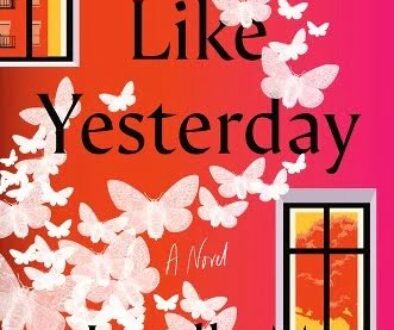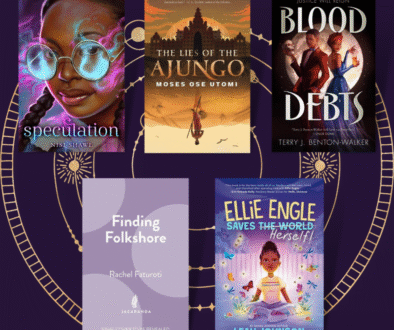The Plot Thickens: The Black Kids
Being an ‘only’ in a classroom full of white people is a circumstance so many kids of color find themselves in, particularly if they are recognized as ‘gifted’ or for athletics, and especially if they find themselves attending school in a white, suburban area. Ashley Bennett, the protagonist of The Black Kids by Christina Hammond Reed, happens to be pretty fortunate in this circumstance, as her parents have made their way into predominantly white Southern Californian suburban life by attaining high-paying socially elite jobs that meant she grew up in a world where she could afford the same privileges in life as her white peers. Unfortunately for Ashley, this is only true of material privileges, something she’s always noticed though her awareness grows exponentially during her last semester in high school.

Lately, when it comes to doing fun things with her friends — which may or may not involve underage drinking and partaking in other substances, trespassing, and skipping school — Ashley is finding herself a) less happy with hanging out with her friends than ever and b) increasingly unable to relate to them. Where it’s tempting to write these off as typical growing pains teens go through to adjust from the friend groups they needed to get through school to make space for the friends they’ll make when they go to college, it is clear that Ashley feels she cannot bring up her family and the way they’re responding to the Rodney King unrest to Courtney, Heather, or Kimberly. For one, Kimberly is absorbed with making her high school romance an everlasting situation. Courtney only really speaks to Ashley to vent about her own worries about getting into a good college, which she says Ashley is lucky not to worry about because of her Blackness guaranteeing her a spot. While Heather is happy to talk about feminism, as she also feels othered by being Jewish, she is also happy to use THAT Yoko Ono quote to exemplify her wokeness. At home, Ashley’s parents are too invested in their work lives, not-so-perfect marriage, and wayward older daughter, Jo, to give Ashley the sounding board she so needs.
Luckily, Ashley does not depend on any of these people to provide her emotional support. That role falls instead to Lucia, her family’s live-in housekeeper and nanny that she’s known since elementary school. Lucia is the first person Ashley calls when she’s in trouble and the person who sees her true feelings, even when she’s trying to hide them from herself. So when Ashley’s sister gets involved in the social justice movement, stirring up the Bennett household’s normalcy, Lucia is who Ashley leans on, while also realizing how selfish she is to do so. It is through Ashley’s conversations with Lucia and Jo that we learn her fears and wants, what makes her tick. It is through Ashley’s observations that we see how little things have changed over time, while also getting a glimpse into the past.
The Black Kids is an interesting title for a book in which we spend the majority of the time with one Black kid, though it makes sense given that the Black kids of which it speaks are the two ‘types’ of Black kids who grow up in white, suburban environments that Ashley and Jo represent. I think this logic holds up through the book and stays true to the ending that each character receives, though ultimately, I found myself happier with the first two acts of the book than the final. The author set up explorations of queerness that never came to fruition and created relationships towards the end of the story that seemed more confusing than thoughtful.
Overall, I would recommend this book to readers who want to be taken back to the pulse of the ‘90s and high school from the vantage of a privileged Black Californian girl that does a good job of showing the ways people under oppression struggle with similar fates across country and time. Possible trigger warnings for mental health, racism, abuse, and substance using.



